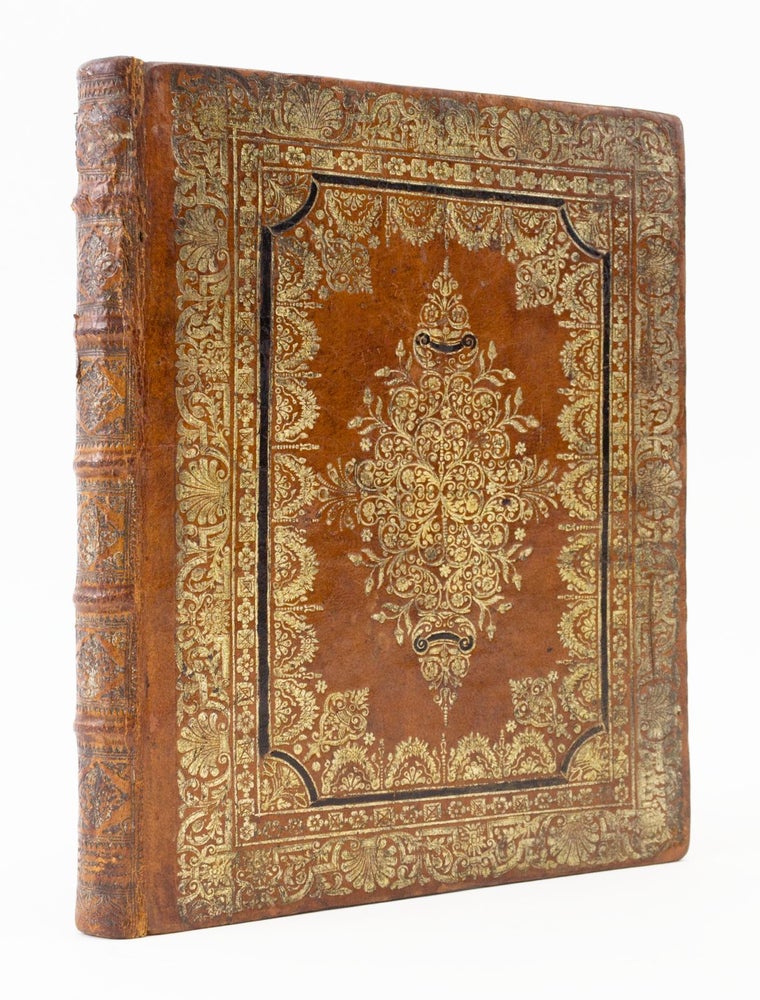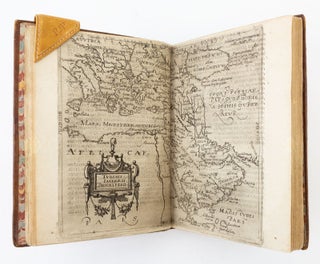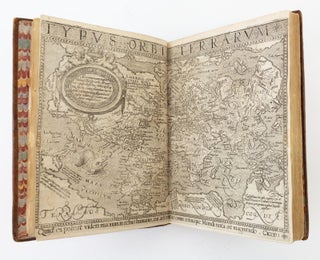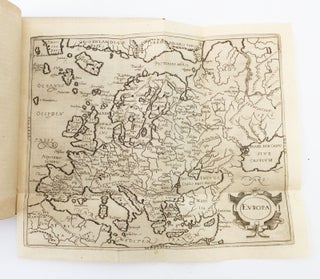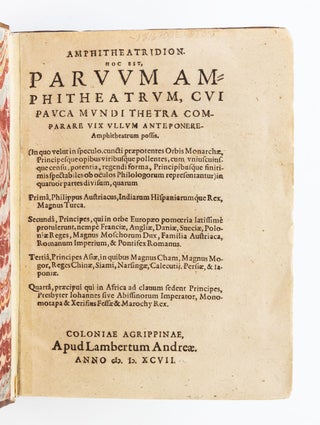AMPHITHEATRIDION. HOC EST, PARVUM AMPHITHEATRUM, CUI PAVCA MUNDI THETRA COMPARARE VIX ULLUM ANTEPONERE AMPHITHEATRUM POSSIS. IN QUATUOR PARTES DIVISUM.
(Coloniae Agrippinae [Cologne]: Apud Lambertum Andreae, 1597). 208 x 160 mm. (8 1/4 x 6 1/4"). 26 p.l., 147, [1] (blank) pp. FIRST EDITION.
Once splendid--and still appealing--18th century calf, elaborately gilt, covers framed by wide palmette roll and narrow flower-and-bead roll, central panel outlined in black paint, large central lozenge composed of myriad small floral tools, leaves, and lancets, this enclosed by a frame of garlands, ornate fleurons at corners, raised bands, spine compartments with decorative fleuron centerpiece (once silver but now mostly black), marbled pastedowns, hinges reinforced with archival tape (older repair to head of spine). With double-page world map, double-page map of the Ottoman Empire, and three folding maps of Europe, Asia, and Africa. VD16 B 6807; USTC 611221. ◆Half-inch crack to head of both joints, binding a bit rubbed, with minor loss of gilt, first two leaves mounted on stubs, but an excellent copy, clean and fresh internally with well-preserved maps, and the binding with nothing approaching a serious defect.
This is the very rare Latin epitome of Botero's "Le Relationi Universali" (1591), the most successful descriptive geography of the world at that time, translated here from the Italian vernacular of the original into the international language of contemporary scholarship. In his Address to the Reader, Botero cites his desire to make the key parts of his survey more widely available to readers "in a smaller and more comfortable form to be carried around, and omitting the Geographical plates (lest their price should frighten away the purchasers)." Happily, he chose to retain the maps for this edition. The contents here discuss the government, wealth, and demographics of territories ruled by the Holy Roman Empire, Austrian archdukes, the Pope, and the kings of France, England, Denmark, Sweden, and Poland. Extensive attention is given to the domains of the King of Spain and to the Ottoman Empire. In Asia, Botero examines Magnus Chan (Tartary), China, Siam, three regions of India, Japan, and Mongolia. In Africa, Botero discusses the kingdom of Mutapa, the Sharif of Morocco, and the realm of the mythical Prester John, an African king supposedly converted to Christianity (the land is, in fact, Ethiopia). The lavish binding here suggests that our copy was owned by a person of means and taste, rather than a poor scholar. A former Jesuit priest, Giovanni Botero (1544-1617) was a political philosopher and diplomat whose writings challenged Machiavelli's "The Prince" by arguing for adherence to Christian ethics over power for power's sake, and prefigured Malthus' population doctrine by attributing the growth and greatness of cities to the relationship between means of subsistence and the rate of human reproduction. Our first edition of this work is extremely scarce: USTC and OCLC find a total of seven copies in libraries worldwide (none in North America), and RBH records none at auction. (ST18169)
Price: $8,000.00

